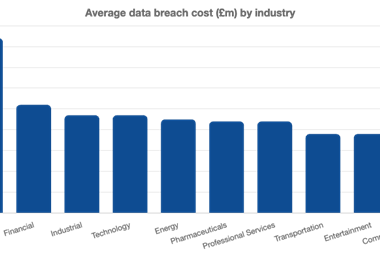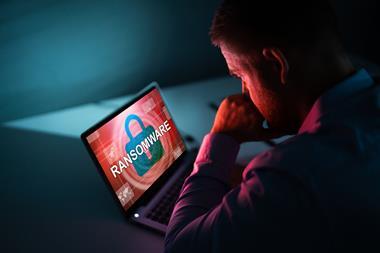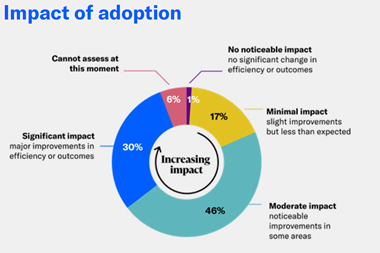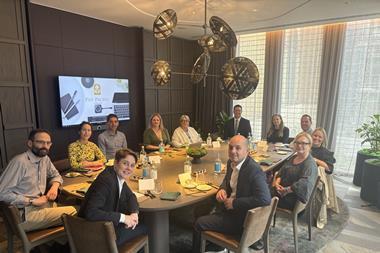As the headline in the Financial Times said: 'Investors should be wary of a black hole'. A black hole is an object whose gravity is so strong that the escape velocity exceeds the speed of light. The forces in this particular buco nero were so strong that they have sucked more than EUR14bn out of one of Italy's best known companies, Parmalat Finanziaria.
Parmalat Finanziaria is the parent company of an international food group founded in 1961 by Calisto Tanzi, after he inherited his father's delicatessen and set up a dairy plant near the town of Parma. Parmalat became the country's first producer of branded milk, developed long life milk using ultra high temperature (UHT) pasteurisation and diversified into other food products around the world. The shares were first quoted on the Milan stock exchange in 1990. In 2002, the company declared a net operating profit of EUR595m.
Concern about Parmalat's high level of debt, shown as over EUR5bn in its 2002 balance sheet, grew during 2003. During the year, the performance of the company's shares on the Milan stock exchange had been volatile.
Starting the year at EUR2.4, the share price fell to EUR1.37 in March, recovering to EUR3 in September. Then as the stories multiplied, it fell again. On one day nearly 400m shares were traded.
Before the end of the year, the US Securities and Exchange Commission (SEC) had brought charges against Parmalat in a federal court, alleging 'one of the largest and most brazen corporate financial frauds in history'.
Tanzi, who retained substantial control over the group through shareholdings in subsidiaries, admitted that he had diverted about EUR500m to other parts of the business where he had family connections, but denied fraud. He and at least 18 other people were arrested. By the end of January 2004, estimates of the amount missing from Parmalat had grown to over EUR14bn.
In retrospect, it is clear that there were signs along the way that something could be seriously wrong. Even before Parmalat's listing, Tanzi relied heavily on debt to expand the company. As in the American cases such as Enron, the scandal of the Italian dairy and food group has raised questions about how the company could have fudged its numbers for so long without outside help. Robert Mittelstaedt Jr, Wharton Business School's vice dean and director of executive education, says that at the very least the auditors should have spoken to Bank of America to verify it held the EUR4bn Parmalat claimed.
Risk management in Italy
The risk manager is still an exotic creature in Italy. Only about 6% of Italian companies state that they have a risk manager, although, according to a report by the Italian risk management association ANRA, seven companies out of 10 acknowledge that there is a direct relationship between risk management and a company's value.
According to research carried out by the market research organisation CIRM for the Milan Polytechnic, ANRA said, this 6% figure represents a range of only 4-5% for small and medium sized companies (SMEs) to 9% for the largest ones. If the question is extended to companies that say they have a professional who deals with risk issues 'occasionally and not full time', the figure still only rises to 23% of Italian companies, ranging from 37% for large companies to 10-15% for SMEs.
Thomas Donaldson, professor of legal studies at Wharton Business School, believes that Italian business culture makes scandal somewhat more likely than in other European countries. The alleged Parmalat scam, he says, would have been much more difficult to effect in Germany, Sweden or Great Britain. "It's no secret that the sometimes almost familial networks of friendship and business 'clubbiness' can go wrong as well as right. Italy has many great strengths, but it also has many weaknesses, from the influence of the Mafia to the tendency of people in government and industry to engage in sweetheart relationships," he says.
These are risks that the Italian code of corporate governance for listed companies, revised as recently as 2002, implicitly acknowledges. 'Independence of judgement is required of all directors, executive and non-executive alike: directors who are conscious of the duties and rights associated with their position always bring independent judgement to their work'.
Relationships must be considered in a very wide sense for the purpose of assessing independence, states the code. 'It is therefore necessary to consider relationships between: on the one hand, directors, members of their families, the professional partnerships of which they are members, the companies they or members of their families control directly or indirectly, and the companies of which such persons are directors or managers and, on the other hand, the company in question, the shareholders who, directly or indirectly, control it, the executive directors and the companies such persons control directly or indirectly'.
No matter how apposite these words were for Parmalat, the structure of corporate governance regulation in Italy seems to have been unable to make them effective. Under the present system, financial market supervision is divided between Consob, the Bank of Italy, the Isvap insurance regulator and a pension funds regulator known as Covip. This system not only failed to anticipate the collapse of Parmalat, but failed to stop the collapse of another food company, Cirio in 2003. It defaulted on more than EUR1bn of bonds.
Sir Howard Davies, a former chairman of the UK regulatory body, the Financial Services Authority (FSA), and now director of the London School of Economics, wrote in the Financial Times on 3 February 2004: 'Establishing a single regulator will not be enough on its own to create the stronger protection for minority shareholders and the more rigorous enforcement of accounting standards, which Italy needs. Other reforms are required, too. But identifying a strong central authority that speaks for the Italian financial system as a whole would be a quick step in the right direction."
A long time
It has been suggested that the hole in Parmalat may have been the result of losses accumulated and covered over many years. Robert Mittelstaedt says that corporate failure is usually the result of a whole series of mistakes, rather than one or two big ones. "The business system is more robust than many people imagine. It takes a fair number of mistakes to drive a company to ruin.
He likens corporate disaster to physical disasters, such as air crashes.
"The same pattern is repeated over and over again. It is just the detail that changes." He says that in the aviation world the technology is now so improved, it has almost disappeared as a cause of accidents. When there is a disaster, it is generally because people have not done what they are supposed to do.
"When it comes to business, you can make all the rules that you want to protect shareholders, and they do help, but it still comes down to the skill or lack of skill or criminality of the individuals in the company. All developed countries are trying to improve the rules by which they govern companies; the difficult part is people."
Shareholders also can do more to manage their own risks. "It's ironic," says Mittelstaedt, "that the more disclosure companies are forced to make, the less people read. Shareholders should at least read the disclosure documents."
Managing risk offshore
That Parmalat was using companies in the Cayman Islands is not itself suspicious, says Warren Cabral, a partner in the Islands law firm Appleby Spurling Hunter. He says there are many legitimate uses for offshore financial vehicles, but that investors and professional advisers need to exercise their judgement. The firm's compliance department lists some of the questions to ask of the sponsors of offshore financial vehicles:
- ACCOUNTING - What methods are employed? Are accounts produced annually?
- CORPORATE GOVERNANCE - How often are there company meetings? How accountable are the executives? What are the executives' remuneration packages? Are details of company transactions available and do they raise concerns?
- OTHER QUESTIONS - How responsive is the firm to questions from professional advisers? Is it over-ready to pay professional and third party bills?
Are there concerns about the actions of lawyers, accountants and related parties in company transactions? Have there been unexplained resignations of professional advisers? Does the use of derivatives and other complex financial instruments give rise to concern? Are there unusual investment practices and financing arrangements?



















